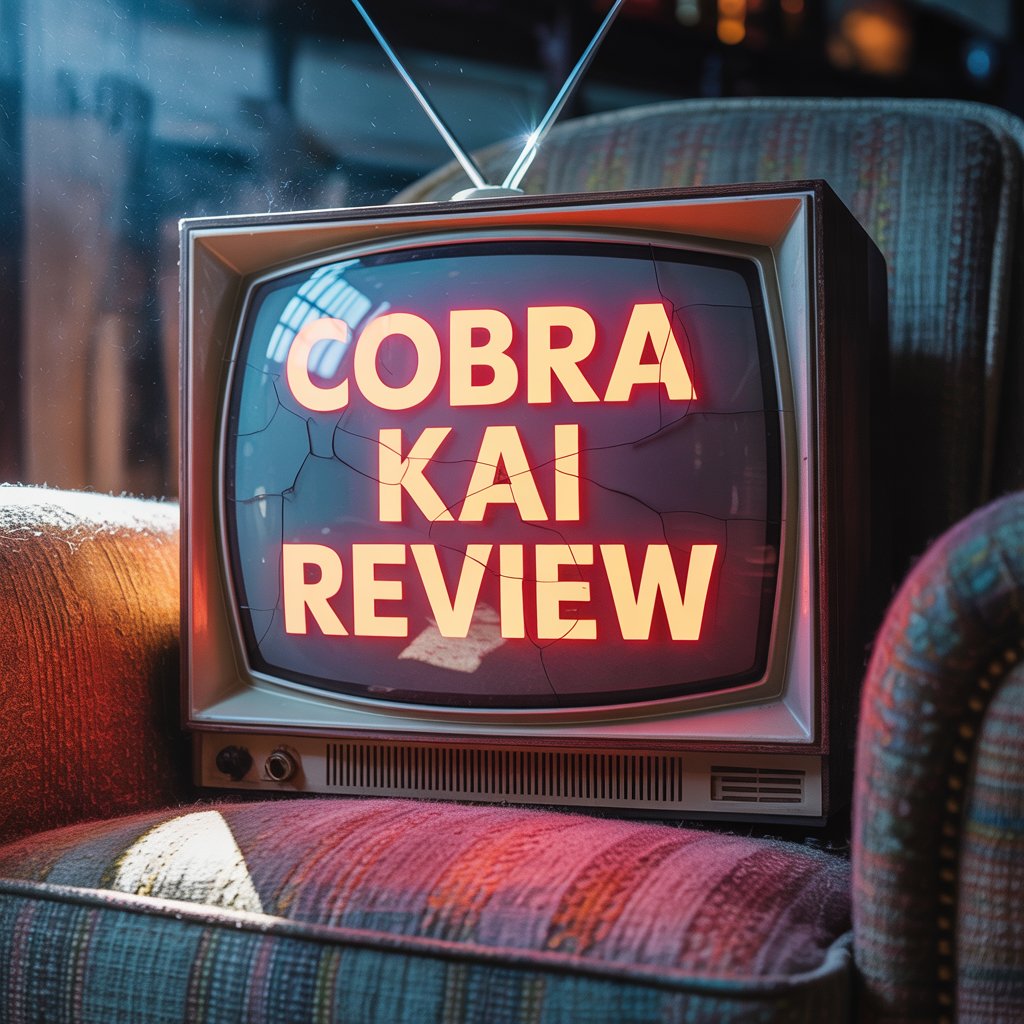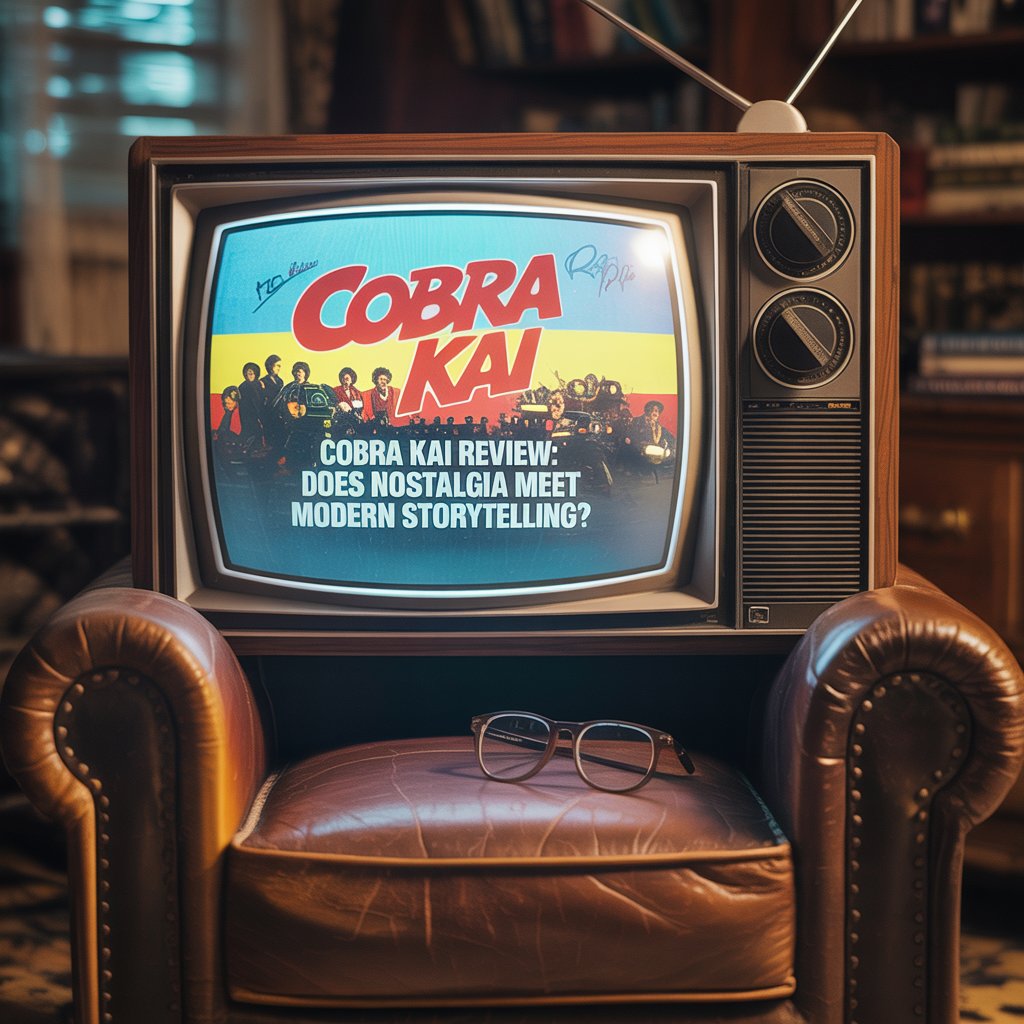Introduction
When the first season of Cobra Kai hit screens, viewers wondered if reviving a story from the 1980s could ever work. Many expected it to feel like a shallow reboot. Instead, it surprised fans and critics alike. This Cobra Kai review explores whether the series lives up to the legendary Karate Kid franchise while creating its own cultural impact.
Table of Contents
The Storyline: More Than a Sequel?
At its core, the show asks one major question: what happens when rivals from the past meet again in adulthood? Johnny Lawrence and Daniel LaRusso still carry the weight of their teenage battles. Their conflict drives the story, but the show cleverly shifts focus to a younger generation of students. This balance between old and new makes the narrative refreshing. Rather than a simple continuation, it becomes an exploration of rivalry, redemption, and identity.
Character Depth: Heroes or Villains?
One of the strongest aspects of this Cobra Kai review is how the series avoids flat characters. Johnny, once portrayed as the bully, struggles with failure and regret. Daniel, once the underdog, now faces flaws of his own as a successful businessman. Both characters blur the line between hero and villain. Their choices feel human, not scripted, and this depth adds authenticity. Newcomers like Miguel, Hawk, and Samantha also shine, creating storylines that connect with both younger and older viewers.
Nostalgia vs Freshness
A review of Cobra Kai cannot ignore nostalgia. Iconic callbacks, soundtracks, and even subtle references remind fans of the original films. However, the show avoids being trapped in the past. It blends humor, action, and modern issues like bullying, peer pressure, and online identity. This balance ensures that even those who never watched The Karate Kid can enjoy the series without feeling left out.
Action Sequences: Do They Deliver?
Martial arts choreography defines the heart of the series. Fight scenes are sharp, exciting, and full of energy. Unlike many shows where action feels repetitive, here each fight tells a story. Whether it’s a school brawl, a dojo showdown, or a quiet sparring session, the choreography stays entertaining. The physical battles often mirror the emotional struggles of the characters, making the action meaningful rather than just flashy.
Humor and Drama: Is the Blend Right?
The show does not drown in seriousness. Moments of comedy—especially from Johnny’s outdated worldview—add a fun layer to the narrative. His attempts to adjust to modern culture provide laugh-out-loud moments. At the same time, the drama remains sharp, tackling real challenges like family tension and mentorship. The smooth balance between humor and drama keeps the series engaging without feeling forced.
Themes: What Lessons Stand Out?
This Cobra Kai review highlights how the series goes beyond fighting. It raises questions about second chances, mentorship, and forgiveness. The rivalry between dojos symbolizes deeper issues like pride, misunderstanding, and the search for belonging. Students often reflect their teachers’ strengths and weaknesses, reminding viewers how guidance shapes young lives. In this way, Cobra Kai delivers lessons without turning into a lecture.
Performances: Who Stands Out?
William Zabka as Johnny delivers raw honesty, showing vulnerability beneath a rough exterior. Ralph Macchio as Daniel blends charm with occasional arrogance, making his character believable. The younger cast, especially Xolo Maridueña as Miguel, carries much of the emotional weight. Every performance feels genuine, proving that strong acting is one of the reasons behind the show’s success.
Pacing and Structure: Does It Keep Viewers Hooked?
Each season flows quickly, with episodes rarely dragging. Cliffhangers keep the audience eager for the next chapter. The show avoids unnecessary filler, giving each subplot relevance. This tight pacing is why binge-watching feels almost irresistible. The story moves forward while keeping enough suspense to hold attention.

Cultural Impact: Why Has It Clicked Globally?
The popularity of Cobra Kai is not limited to fans of the original franchise. Its success on streaming platforms shows that the themes resonate widely. The series taps into the universal appeal of rivalry, friendship, and growth. It sparks discussions across age groups, bridging generational gaps through shared storytelling.
Weaknesses: Is It Perfect?
No review is complete without pointing out flaws. At times, the teenage drama leans into clichés. Certain rivalries among students feel stretched. Some conflicts could resolve faster but are extended for dramatic effect. However, these weaknesses remain minor compared to the overall strengths of the series.
Also read: traceloans.com Credit Score.
Conclusion: Is Cobra Kai Worth Watching?
This Cobra Kai review concludes with a clear answer: yes. The show successfully blends nostalgia with modern storytelling. It respects the legacy of The Karate Kid while building something fresh for new audiences. With powerful characters, engaging action, and meaningful themes, it proves that a reboot can achieve more than just cashing in on old glory. Whether you are a long-time fan or a newcomer, Cobra Kai delivers an entertaining and thoughtful ride.


